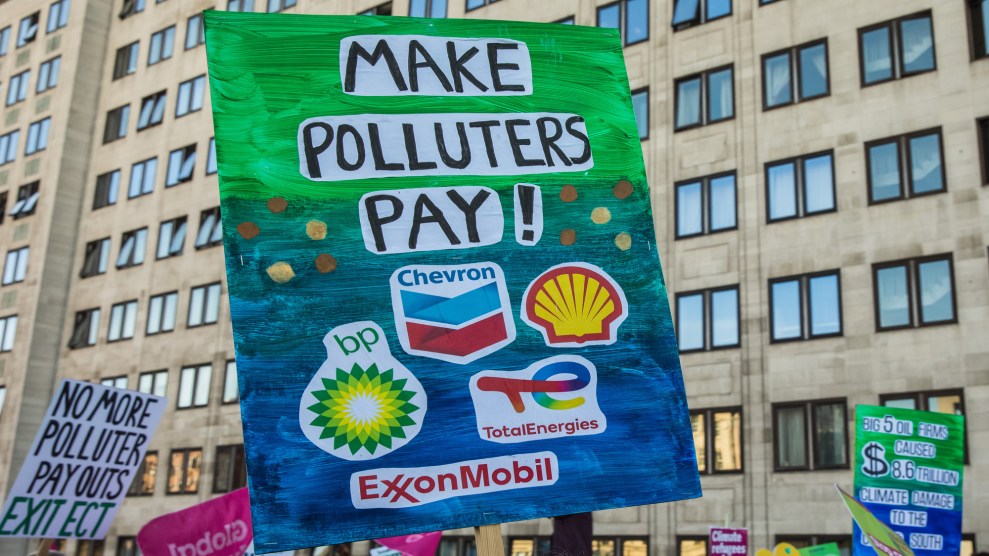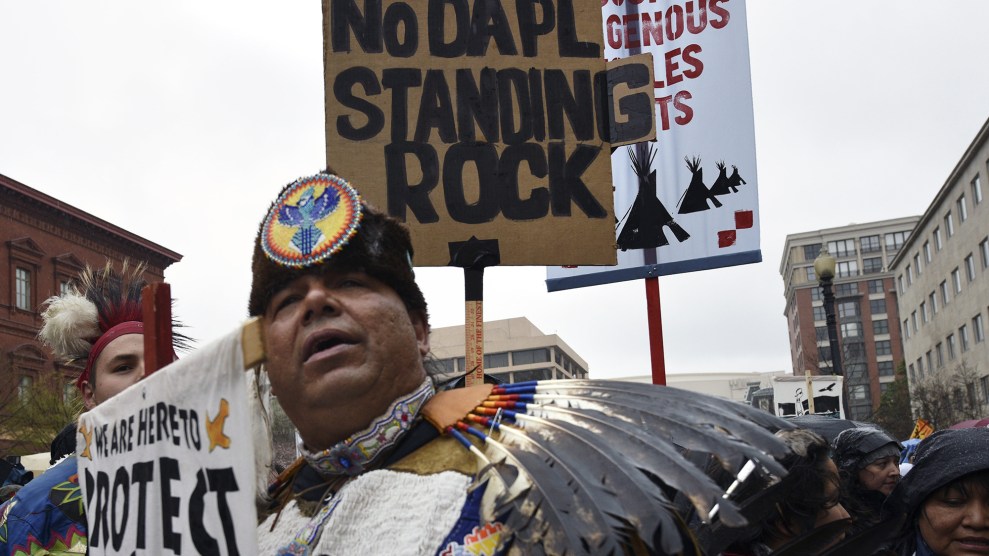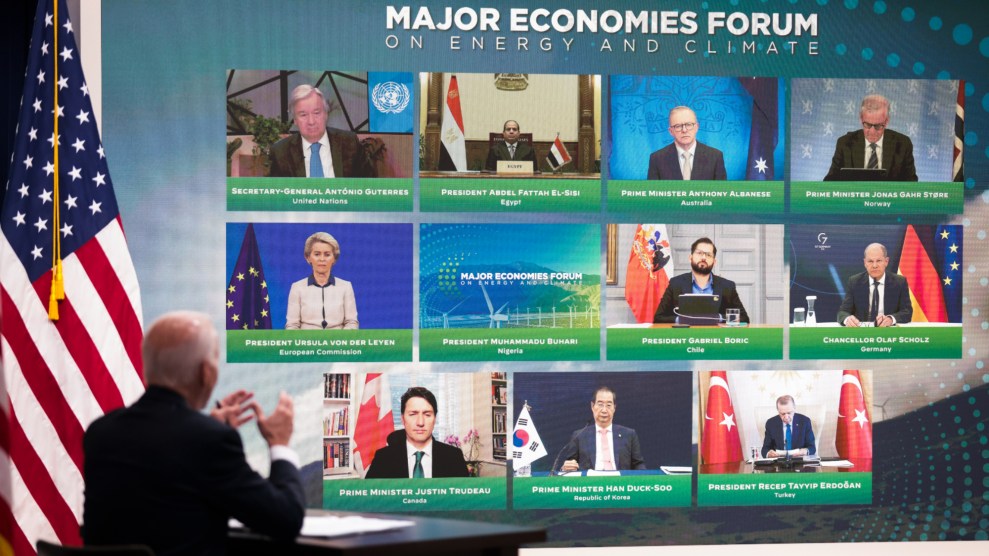
Mark Kerrison/In Pictures/Getty
This story was originally published by the Guardian and is reproduced here as part of the Climate Desk collaboration.
While 2022 inflicted hardship upon many people around the world due to soaring inflation, climate-driven disasters, and war, the year was lucrative on an unprecedented scale for the fossil fuel industry, with the five largest western oil and gas companies alone making a combined $200 billion in profits.
In a parade of annual results released over the past week, the “big five”—ExxonMobil, Chevron, Shell, BP, and TotalEnergies—all revealed that last year was the most profitable in their respective histories, as the rising cost of oil and gas, driven in part by Russia’s invasion of Ukraine, helped turbocharge revenues.
ExxonMobil, the Texas-based oil giant, led the way with a record $55.7 billion in annual profit, taking home about $6.3 million every hour last year. California’s Chevron had a record $36.5 billion profit, while Shell announced the best results of its 115-year history, a $39.9 billion surplus, and BP, another London-based firm, notched a $27.7 billion profit. The French company TotalEnergies also had a record, at $36.2 billion.
When the 2022 results for all publicly traded oil and gas companies are tallied the total profits are expected to exceed $400 billion, “a number we’ve never seen before, and one that was built off the backs of working families who were victimized by oil and gas executives’ greed,” according to Claire Moser, deputy executive director of the US activist group Climate Power.
The stratospheric profits were criticized as “outrageous” by Joe Biden during his State of the Union address on Tuesday. Biden said that “we’re still going to need oil and gas for a while” but the US president attacked companies for enriching shareholders through share buybacks rather than helping alleviate rising gasoline costs for drivers.
The big five oil and gas companies have already confirmed that most of the bumper profits will be going to stock buybacks and dividends. The $200 billion in combined profits equates to about five times the US’s annual foreign aid budget, or about double what the world gave to Ukraine last year in military and humanitarian assistance. If the oil executives had decided to use this money to go to space, they could have left the Earth’s atmosphere 3,225 times on Elon Musk’s SpaceX rocket, at $62 million a trip.
António Guterres, the secretary-general of the UN, was scornful of the industry in a speech on Monday, in which he expressed incredulity at the “monster profits” of fossil fuel companies at a time when the world needs to be rapidly slashing its planet-heating emissions to avoid climate breakdown.
“If you cannot set a credible course for net-zero [emissions], with 2025 and 2030 targets covering all your operations, you should not be in business,” Guterres said. “Your core product is our core problem. We need a renewables revolution, not a self-destructive fossil fuel resurgence.”
Even though the rollout of renewable energy such as solar and wind is gathering momentum around the world, countries are still forging ahead with numerous “carbon bomb” projects that would push the world beyond agreed “safe” temperature limits. Last year, more than $1 trillion were invested in fossil fuel infrastructure and extraction worldwide.
The sale of oil and gas remains so enticing that BP this week announced it is scaling back its climate ambitions, retaining its fossil fuel assets for longer than it previously expected. “We need continuing near-term investment into today’s energy system—which depends on oil and gas—to meet today’s demands and to make sure the transition is an orderly one,” said Bernard Looney, BP’s chief executive. “At the end of the day, we’re responding to what society wants.”
Looney has previously called BP a “cash machine” due to its prodigious financial returns, while the company’s finance chief, Murray Auchincloss, last year admitted that “it is possible that we are getting more cash than we know what to do with.”
This stance drew a sharp rebuke from campaigners who point out that the largest fossil fuel companies are still investing relatively little into clean energy, endangering the goals of the Paris climate agreement.
“If the bulk of your investments remain tied to fossil fuels, and you even plan to increase those investments, you cannot maintain to be Paris-aligned, because you will not achieve large-scale emissions reductions by 2030,” said Mark van Baal, founder of Follow This, an activist shareholder group.
“The picture is clear now, no oil major has plans to drive down emissions this decade. Now it’s up to the shareholders. Together with major investors, we continue to compel BP to put its full weight behind the energy transition.”














